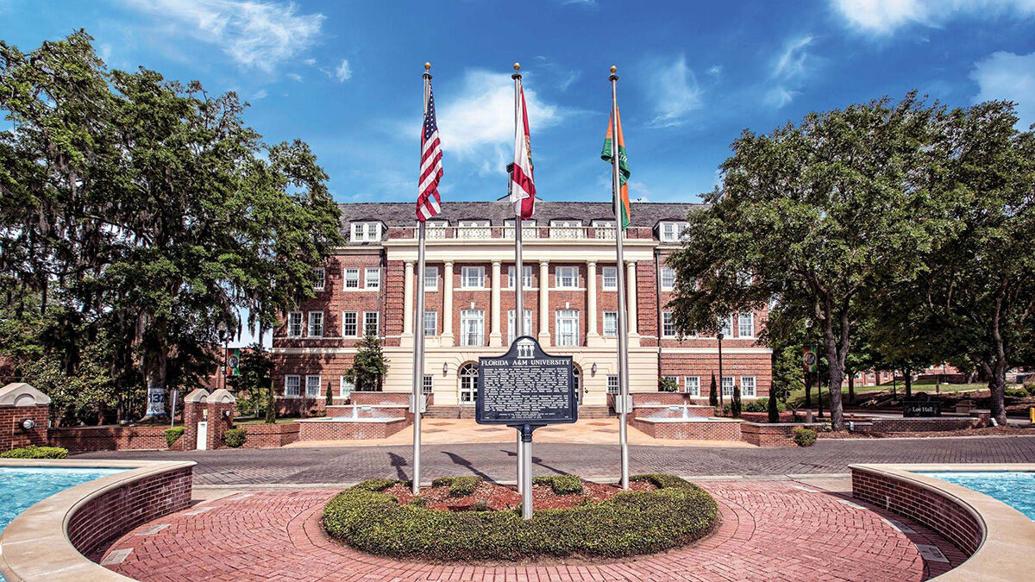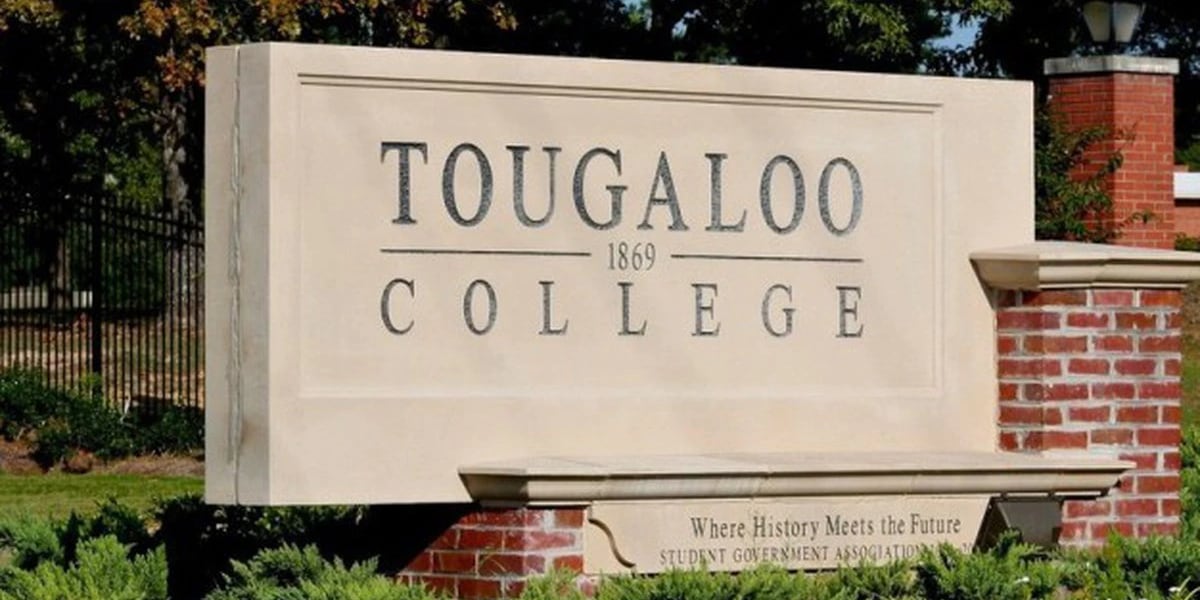WHITE HOUSE INITIATIVE TO PROMOTE EXCELLENCE AND INNOVATION AT HISTORICALLY BLACK COLLEGES AND UNIVERSITIES
By the authority vested in me as President by the Constitution and the laws of the United States of America, it is hereby ordered:
Section 1. Purpose. Historically Black Colleges and Universities (HBCUs) remain integral to American students’ pursuit of prosperity and wellbeing, providing the pathway to a career and a better life. This order will continue the work begun during my first Administration to elevate the value and impact of our Nation’s HBCUs as beacons of educational excellence and economic opportunity that serve as some of the best cultivators of tomorrow’s leaders in business, government, academia, and the military.
Sec. 2. Policy. It is the policy of my Administration to support HBCUs in: advancing America’s full potential; fostering more and better opportunities in higher education; providing the highest-quality education; obtaining equal opportunities for participation in Federal programs; ensuring college-educated Americans are empowered to advance the common good at home and abroad; and making our Nation more globally competitive.
Sec. 3. White House Initiative on HBCUs. (a) There is hereby established the White House Initiative on Historically Black Colleges and Universities (Initiative), housed in the Executive Office of the President and led by an Executive Director designated by the President.
(b) The Initiative shall work with executive departments and agencies (agencies), the President’s Board of Advisors on Historically Black Colleges and Universities established in section 4 of this order, private-sector employers, educational associations, philanthropic organizations, and other partners to increase the capacity of HBCUs to provide the highest-quality education to an increasing number of students. The Initiative shall have two primary missions:
(i) increasing the private-sector role, including the role of private foundations, in:
(A) strengthening HBCUs through enhanced institutional planning and development, fiscal stability, and financial management;
(B) upgrading institutional infrastructure, including the use of technology, to ensure the long-term viability of these institutions; and
(C) providing professional development opportunities for HBCU students to help build America’s workforce in technology, healthcare, manufacturing, finance, and other high-growth industries; and
(ii) enhancing HBCUs’ capabilities to serve our Nation’s young adults by:
(A) supporting implementation of the HBCU PARTNERS Act (Public Law 116-270), including facilitating the Federal agency plan process required by section 4 of that Act (20 U.S.C. 1063d);
(B) working to advance my Administration’s key priorities related to promoting innovation and excellence throughout HBCUs in consultation with HBCU leaders, representatives, students, and alumni;
(C) fostering private-sector initiatives and public-private and philanthropic partnerships to promote centers of academic research and program excellence at HBCUs;
(D) improving the availability and quality of information concerning HBCUs in the public policy sphere;
(E) sharing administrative and programmatic best practices within the HBCU community;
(F) addressing efforts to promote student success and retention at HBCUs, including college affordability, degree attainment, campus modernization, and infrastructure improvements;
(G) partnering with private entities and elementary and secondary education stakeholders to build a pipeline for students that may be interested in attending HBCUs and promote affordable degree attainment;
(H) encouraging States to provide the required State matching funds for 1890 Land-Grant Institutions;
(I) collaborating with the Department of Agriculture and State governments to establish a framework for addressing barriers to accessing Federal funding to ensure that HBCUs receive the maximum funding to which they may be entitled;
(J) collaborating with agencies to improve the competitiveness of HBCUs for other sources of Federal research and development funding; and
(K) convening an annual White House Summit on HBCUs to address matters related to the Initiative’s missions and functions.
(c) The heads of agencies shall assist and provide information to the Initiative, consistent with applicable law, as may be necessary to carry out the functions of the Initiative. Each agency shall bear its own expenses of participating in the Initiative.
Sec. 4. President’s Board of Advisors on HBCUs. (a) There is established in the Department of Education the President’s Board of Advisors on Historically Black Colleges and Universities (Board). The Board shall fulfill the mission and functions established by, shall have the structure set forth in, and shall in all other respects be subject to the provisions of section 5 of the HBCU PARTNERS Act (20 U.S.C. 1063e). The Board shall include representatives of a variety of sectors, such as philanthropy, education, business, finance, entrepreneurship, innovation, and private foundations, and current HBCU presidents.
(b) The Board shall advise the President, through the Initiative, on the matters set forth in section 5(c) of the HBCU PARTNERS Act (20 U.S.C. 1063e(c)).
(c) The Department of Education shall provide funding and administrative support for the Board, consistent with applicable law and subject to the availability of appropriations. Insofar as chapter 10 of title 5, United States Code (commonly known as the Federal Advisory Committee Act), may apply to the Board, any functions of the President under that Act, except for those in section 6 and section 14 of that Act, shall be performed by the Secretary of Education, in accordance with guidelines issued by the Administrator of General Services.
Sec. 5. Accountability and Implementation. (a) The Executive Director of the Initiative shall submit an annual progress report to the President summarizing the Federal Government’s impact on HBCUs and providing recommendations for improvement.
Sec. 6. Revocations. Executive Order 14041 of September 3, 2021 (White House Initiative on Advancing Educational Equity, Excellence, and Economic Opportunity Through Historically Black Colleges and Universities), is hereby revoked. Within 14 days of the date of this order, the Administrator of the Environmental Protection Agency shall terminate the Historically Black Colleges and Universities and Minority Serving Institutions Advisory Council.
Sec. 7. General Provisions. (a) For the purposes of this order, “historically black colleges and universities” shall mean those institutions listed in 34 C.F.R. 608.2.
(b) Nothing in this order shall be construed to impair or otherwise affect:
(i) the authority granted by law to an executive department or agency, or the head thereof; or
(ii) the functions of the Director of the Office of Management and Budget relating to budgetary, administrative, or legislative proposals.
(c) This order shall be implemented consistent with applicable law and subject to the availability of appropriations.
(d) This order is not intended to, and does not, create any right or benefit, substantive or procedural, enforceable at law or in equity by any party against the United States, its departments, agencies, or entities, its officers, employees, or agents, or any other person.
DONALD J. TRUMP
THE WHITE HOUSE,
April 23, 2025.
Via:
White House Initiative to Promote Excellence and Innovation at Historically Black Colleges and Universities










